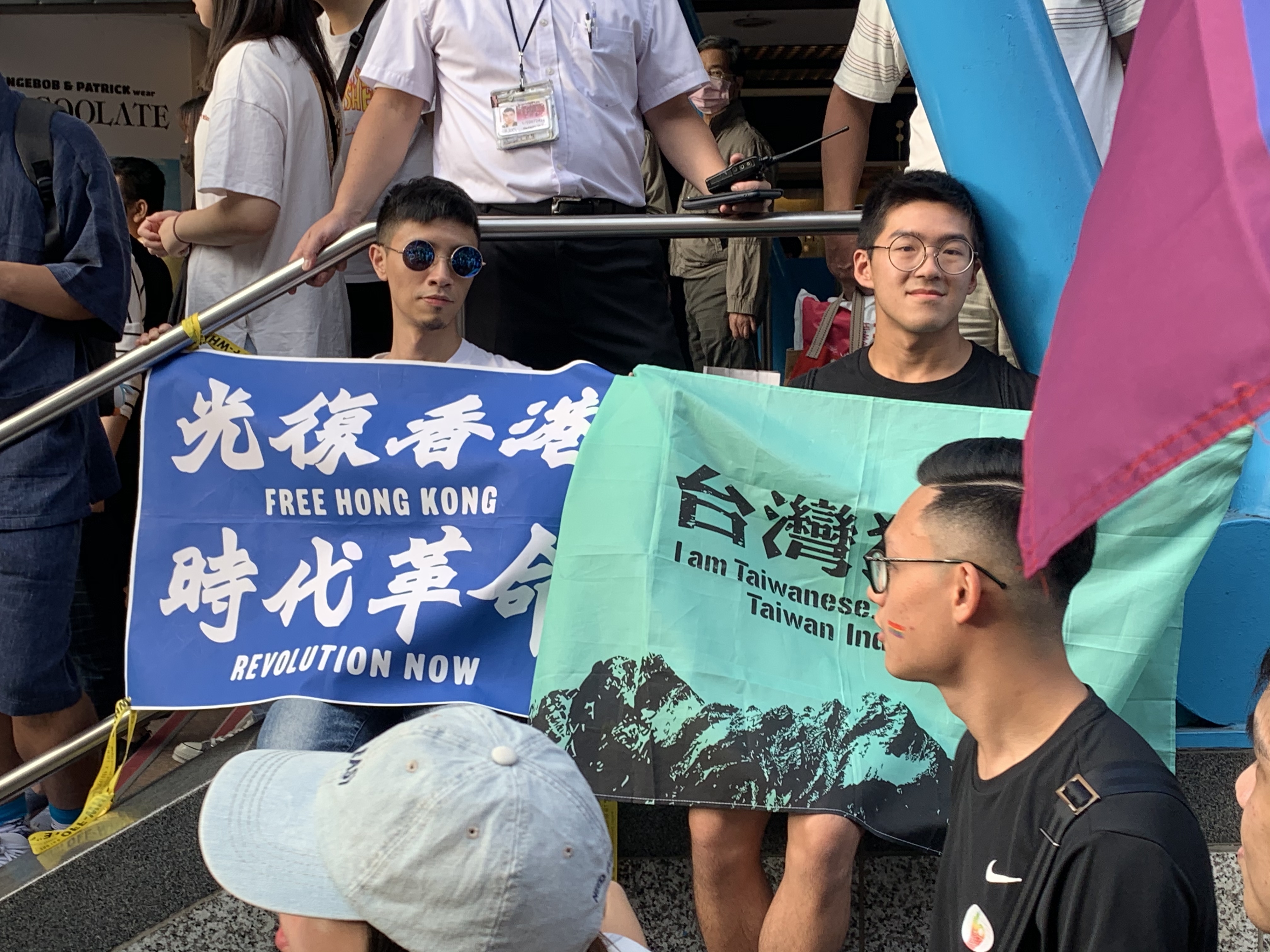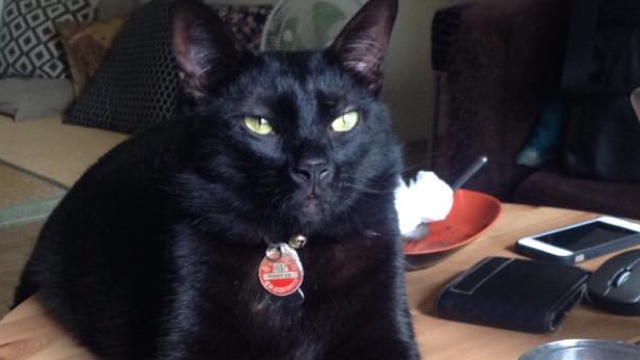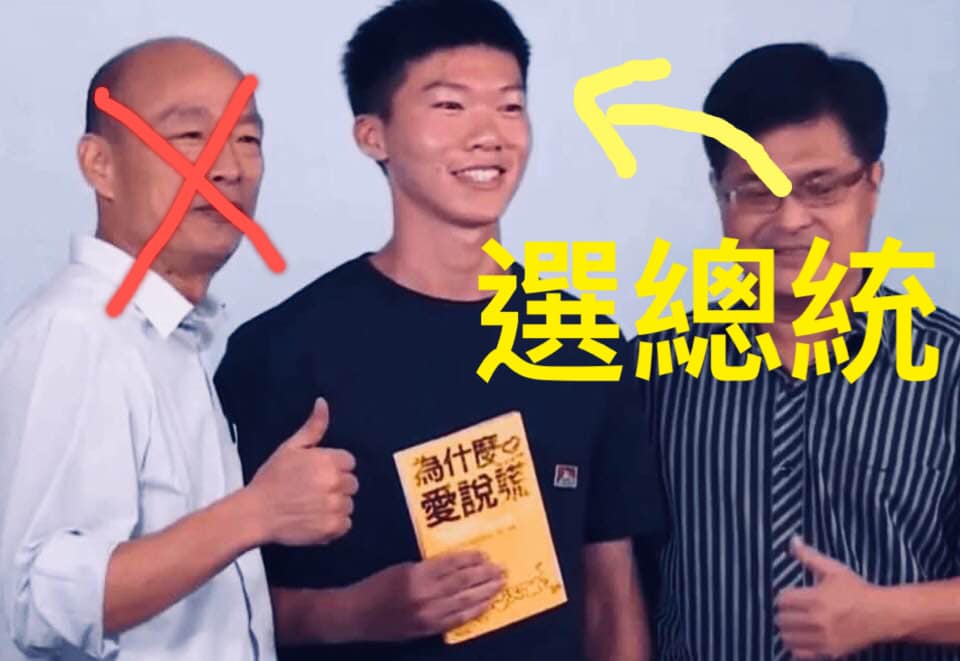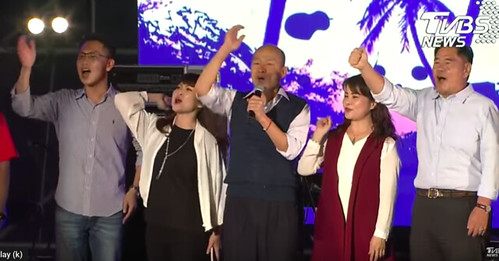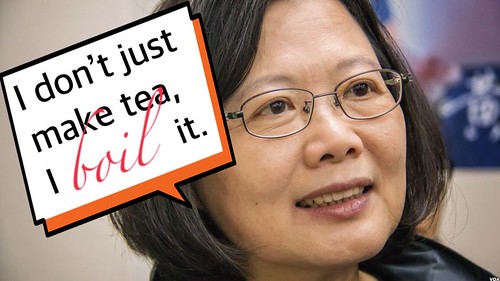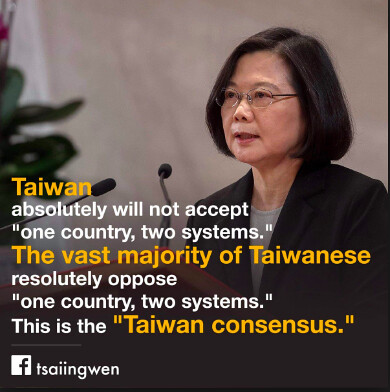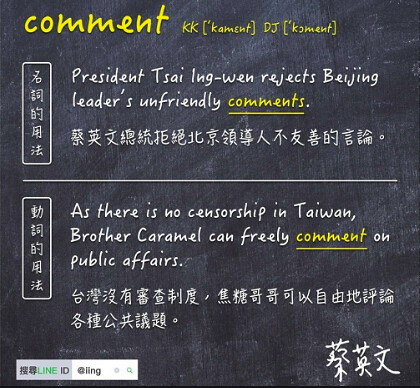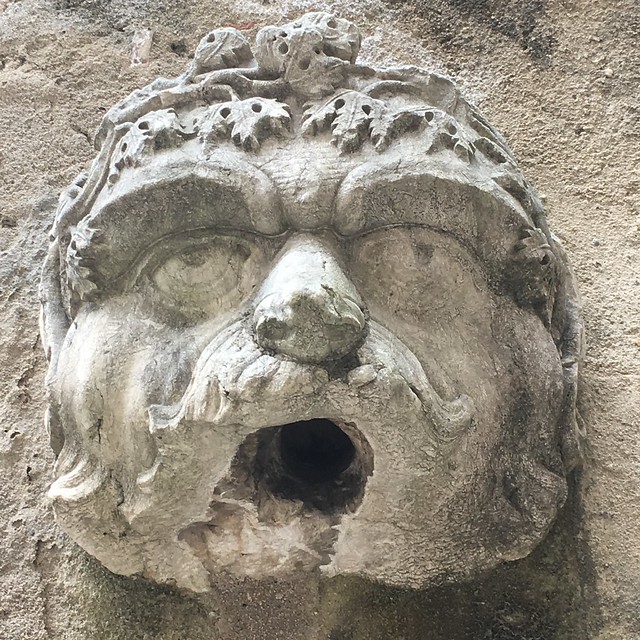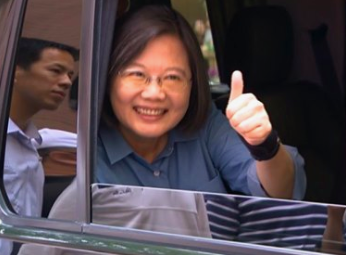
I want to clarify something from my Sunday night rant about the misconception that, if not for Hong Kong, China would have still had a chance to win over Taiwan.
Of course it's silly to say that the events in Hong Kong haven't played any role in Tsai's popularity resurgence. They've obviously had an effect, though I'd still disagree that they are "singlehandedly" responsible for reasons I discussed on Sunday. Tsai's improved marketing, Lai's primary loss, Han acting like more and more of a racist idiot who doesn't do his job, the passage of same-sex marriage and other domestic events have also played a role.
The bigger point is this, however. Election results in Taiwan aren't the best way to measure how open Taiwan is to unification. Polls of Tsai or Han's popularity aren't either.
Despite this, people looking for some sort of 'in' to say that China is 'hurting its chances' of winning over Taiwan, which implies China had a chance to begin with, tend to look at electoral politics to support their arguments. That's exactly what happened in the Bloomberg piece that annoyed me so much on Sunday.
The way to measure whether China has a chance of 'convincing' Taiwan is to look at more stable long-term data regarding how Taiwanese view themselves and their country.
That is, Taiwanese identity and Taiwanese independence (de facto or status quo, regardless of name). Regardless of who they vote for, if a sense of Taiwanese identity and nationhood is strong, you can be sure that China could hire all the free candy vans in the world, and Taiwan would not budge.
And that's exactly what we've seen. Sure, pro-unification
Similarly, Tsai's popularity could be in the gutter and it wouldn't change the fact that Taiwanese identity recovered quickly from its hiccup, starting in around 2018. Even when that number began to dip, it never came close to being overtaken by "Chinese" (or even "both Taiwanese and Chinese").
In fact, Han could win in 2020, and it still wouldn't change that. It makes the landscape more dangerous, as he and his CCP/KMT handlers would probably take that as a mandate to head in that direction. But there's no reason to believe that Taiwanese identity will take a hit any more than it did either time Ma won, which means there's no reason to believe that China's 'chances' of convincing Taiwan to move toward unification will improve either.
It's just deeply simplistic to think of Taiwanese politics as two boxes voters can tick: "the KMT/unification/Chinese identity" on one side, and "the DPP/independence/Taiwanese identity" on the other. There are strong correlations, with China being the biggest cleavage (heheh, cleavage), but to assume that a vote for the DPP is a vote for independence and a vote for the KMT is a vote for unification is such a jejune way of looking at it.
So why do people believe otherwise? I have no idea, but I suspect they think it just makes for a clickable lede.
Anyway, there are lots of reasons why who wins in 2020 isn't a good measure of support for independence or unification, so please allow me to opinionate in your general direction about them.
The first is that not every independence supporter sees China as the biggest threat to Taiwan's sovereignty, as Frozen Garlic so insightfully pointed out. I won't summarize his post as it's not that long - go read it. I'd characterize the voters I'm about to describe a little differently, though. While his 'fundamentalists' might feel angry at the DPP for promising nationhood and failing to deliver, there's a subset that is willing to vote for the KMT if they are convinced unification is off the table. During the Ma years, I knew a few of these: generally green, had voted for and grown disappointed with Chen, and then voted for Ma to 'punish' the DPP while at the same time assuming that, as Ma was the US's preferred candidate, that the US would have Taiwan's back.
And yet, these voters clearly don't see the KMT or the ROC military as potent symbols of the old regime, being more like the pragmatists Frozen Garlic describes. A part of why they were willing to vote for Ma was that they saw the KMT as a viable political party that had evolved with democratization.
I am hopeful, at least, that most of this "I'm green but Ma is acceptable" crowd is not going to vote for Han this time around.
Then there are the true fundamentalists - the "Never Tsai" people who do see the KMT and the ROC colonial structure as the biggest threats to Taiwanese statehood and would never vote for them - these are the folks drawn in by people like Annette Lu (so that's like, four people) or William Lai, who don't like Tsai's lack of nationalist hot air. Their refusal to vote (or voting for some last-minute third party candidate - I think James Soong is running for the 456th time) is also a factor.
But then there's another group, the ones who could potentially swing the election to Han, if it can be swung. Those are the born-and-raised deep blues who still think that Taiwan is not a part of China, or at least not the PRC. The old-school KMTers before the KMT turned red, and those who are smart enough to see Taiwan's reality clearly, but not willing to break from the party identity they inherited from their parents.
Don't laugh. I know one of these guys. The older son of a father born in China, he grew up in a military village in Taiwan. He was raised with an "ROC" identity and a sense that the KMT was an above-board political party, but his observations of life in Taiwan made him realize that Taiwan was truly a different place from China. He calls himself Taiwanese. He thinks "retaking the Mainland" is a pipe dream, and supports independence. Although he's 華獨 (a supporter of independence keeping the Republic of China framework), if a peaceful de jure independence were offered with the condition that Taiwan must be "Taiwan" rather than the "Republic of China", he would consider it "a difficult decision" but indicates a willingness to sincerely consider it as a far lesser evil than unifying with the PRC. He supports marriage equality and somewhat begrudgingly concedes that Tsai is handling China well - in fact, he has plenty of views more at home with the DPP than the KMT. He hated Chen's overt Hoklo nationalism.
And yet he intends to vote for Han. Identity is a powerful thing.
The point is, people like him may vote as though they're pro-China, but they're not. They're anti-unification and anti-PRC (as opposed to "pro-Taiwan"), with views often constructed during their formative years in which the KMT was emphatically not "the natural ally of Beijing" (as Richard McGregor put it in Bloomberg) the way it is today.
In other words, the sort of people who can swing an election in Taiwan and put a KMT president in power are not necessarily people who will support steps toward unification.
Looking at it that way, there is no meaningful support for unification in Taiwan and there hasn't been in some decades, regardless of who wins elections. If that's the case, then events in Hong Kong have not, in fact, "ruined China's chances" with Taiwan, because those chances never existed in the first place.
To finish this off, that's why things like this piss me off so hard:
What if Han wins the general election and calls for “peaceful reunification” of the two Chinas [sic sic sic], based on “one country, two systems”? Solve for the equilibrium! I see the following options:
1. They go ahead with the deal, and voila, one China!
2. The system as a whole knows in advance if this is going to happen, and if it will another candidate runs in the general election, splitting the KMT-friendly vote, and Han never wins.
2b. Han just doesn’t win anyway, even though his margin in the primary was considerable and larger than expected.
3. The current president Tsai Ing-wen learns from Taiwanese intelligence that there are Chinese agents in the KMT and she suspends the general election and calls a kind of lukewarm martial law.
4. Han calls for reunification [sic] and is deposed by his own military, or a civil war within the government ensues.
5. Han foresees 2-4 and never calls for reunification [sic] in the first place.
What bugs me about this (other than the absolute howler that is #3, lol) is that none of these options includes the most obvious one.
It allows for government intervention, party intervention and current administration intervention (again, lol) but not the actual intervention likely to occur.
In fact, here's the most likely outcome of that scenario:
Han wins, calls for unification, and faces protests so massive that they make the Sunflowers look like a school trip to learn about government.
If Han wins and attempts #1, this is almost certainly what will happen, because a vote for Han is not a vote for unification, just as a vote for Ma wasn't one, either. Forget the legislature as the seat of all the action - entire government ministries are occupied. Traffic at a standstill. Marches every weekend. Graffiti everywhere.
And because this hypothetical President Han is Beijing's toy, and would be quite serious in his attempts to allow a "peaceful" annexation, those protests grow so massive and so angry that in order to assert control (and carry out his Chinese masters' orders) Han very well might tacitly permit more police violence than Taiwanese find palatable, which is any police violence. Remember that a whole song - the other one, not the super famous "Island Sunrise" - was inspired by a few water cannons on a single night in 2014. They fight back, as Hong Kongers have done, and bam. That tsunami I warned about in my last post? That's what it is.
I don't have a conclusion. I just want you to sit there and roll that around in your mind for a bit.

